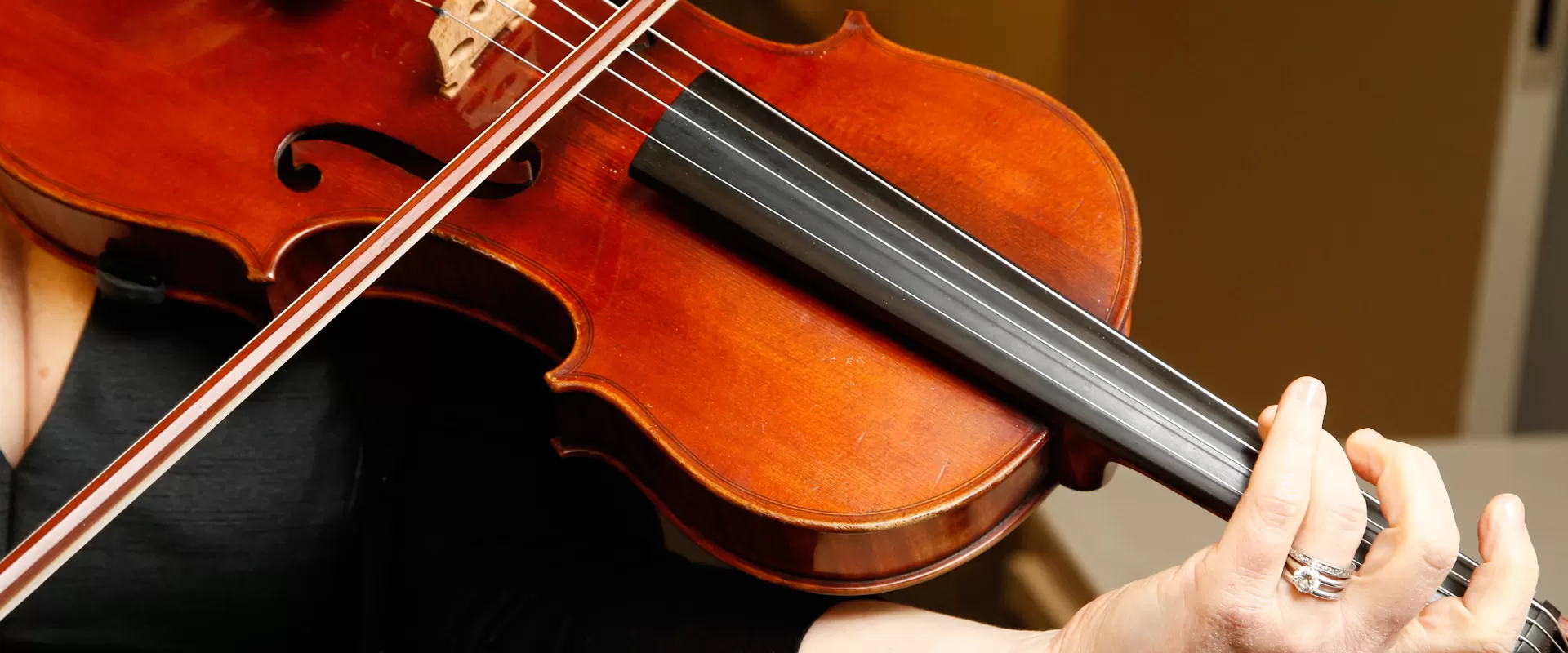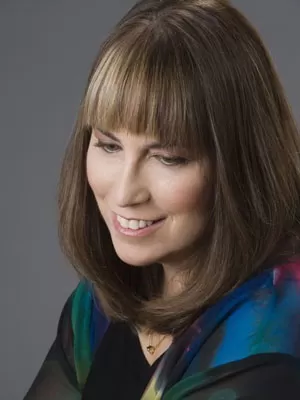Apr 27, 2003 - 12:00 pm
In 1940 Gideon Klein was a 20-year-old star student in the musicology department at Charles University in Prague, and in composition classes at the Prague Conservatory. Poised for the next stage of his career, about to leave for London with a scholarship to the Royal Academy, he was yanked into the dark realities of his time. Hitler was in charge now: Klein, a Jew, was expelled from his studies and denied permission to travel. After a few months of furtive performances under a pseudonym, he was shipped off to Terezín in December of 1941.
Younger composers like Klein buoyed up the spirits of older ones in Terezín, so that, in the brief time remaining to each before their keepers sent them off to be killed, they left a substantial legacy of work. Compositions written there took account of the presence of specific musicians, on specific instruments, but performance plans often had to be altered, depending on who had been sent away. Klein himself was aboard the October 16, 1944 transport to Auschwitz, in the company of many of his musical colleagues. Sent to work the coal mines at Fürstengrab, he died there, shortly before the camp was liberated.
Klein wrote this piece during the winter of 1942-43 for a group of his colleagues from Prague, who became known as the Terezín String Quartet.
Stempenyu Suite (1930) - Joseph Achron (1886-1943)
A violin virtuoso himself (taught by Auer) as well as a composer (taught by Lyadov), Achron participated in the short but active life of the Society for Jewish Folk Music, founded in St. Petersburg in 1908. Encouraged by Rimsky-Korsakov, this group of Jewish composers—at one point over a thousand members—worked in the spirit of the late-19th-century search for folkloric elements on which to base a new art music. Like Dvorak and Smetana, and later Bartok, these musicians headed off into the unsophisticated environments of their people—the synagogues and marketplaces of small towns—in search of a true Jewish folk sound. Unlike their European counterparts, however, Achron and his colleagues were stopped by the Soviet anti-religious machine, and the Society was disbanded in the mid-1920s. Achron emigrated to Berlin in 1922, where he and fellow Society member, Mikhail Gnessin, briefly managed a Jewish music publishing company, Jibneh. After a few months in Palestine, Achron moved to America in 1925, first settling in New York. In 1934 he relocated to Hollywood, where he composed for films and continued to tour as a concert violinist. His third violin concerto was commissioned by Heifetz, a fellow émigré in the film capital. His friend Arnold Schoenberg eulogized Achron as “one of the most underrated modern composers.”
The Stempenyu Suite was composed for a production, at the Yiddish Theatre in New York, of Sholem Aleichem’s tale of a dashing klezmer fiddler, based on a historical character.
Fathers (2002) - Lori Laitman (b. 1955)
World premiere: April 27, 2003, Benaroya Hall, Seattle, WA at Music of Remembrance’s Holocaust Remembrance Day Concert.
Lori Laitman is a composer of art songs, whose works are performed widely in the United States and abroad. She is a graduate of Yale (magna cum laude, honors in music) with the M.M. in flute performance. Her song cycle, Holocaust 1944, received its world premiere at Music of Remembrance’s November 2000 concert, featuring baritone Erich Parce and world-renowned doublebassist Gary Karr.
Ms. Laitman served as guest artist at Georgia Southern University, at the Grandin Festival (associated with the Cincinnati Conservatory of Music), and at Dickinson College in Pennsylvania. The Nebraska Music Teachers Association’s 2002 Composer of the Year, she was the winner of the Boston Art Song Competition (2002), and has four times been awarded the Maryland State Arts Council Individual Artist Award in Music. The Emily Dickinson International Society featured performances of Ms. Laitman’s settings of Dickinson’s poetry, and last January her Long Pond Revisited cycle premiered at The Kennedy Center. Lori Laitman’s debut CD, Mystery - The Songs of Lori Laitman, was released in August 2000 on the Albany Records label to critical acclaim.
Laitman writes:
Fathers for baritone and piano trio sets the poems of Sri Lankan poet Anne Ranasinghe and the late Russian poet David Vogel. I had previously set their poetry in my Holocaust 1944 song cycle and continued to be interested in their works. This cycle can be considered a sequel to another Holocaust related cycle of mine entitled Daughters, which sets the poetry of Holocaust poets Anne Ranasinghe and Karen Gershon. Here, however, the focus is on the father-child relationship rather than the mother-daughter relationship. Anne Ranasinghe’s father was murdered by the Nazis. If the poem by David Vogel is autobiographical, his father was also killed by the Nazis.
The subject matter of these poems, as well as their length, created particular challenges for me as a composer. There are three main songs in this cycle – “You, Father,” “Last Night I Dreamt,” and “I Saw My Father Drowning.” The fourth main poem, “Don’t Cry,” is much shorter and its theme serves as a respite to the nightmarish visions of the other poems. I felt, however, that the cycle was not structurally coherent with three long songs followed by such a short song. I also felt that something was needed to counteract the despair of the three main songs. So I divided the last song, “Don’t Cry,” with its message of hope, into musical fragments. Each fragment appears before each of the main songs. The first fragment is a setting of the first sentence of the poem; the second fragment is a setting of the first two sentences, and so on. The first two fragments are set with only pizzicato strings. The right hand of the piano is introduced in Fragment 3 and both hands of the piano join in as “Don’t Cry” is played in its entirety. While there are slight differences in the repetitions of the fragments, there is enough similarity so that as each fragment returns it sounds familiar. Thus the poem’s message is enhanced as the music itself, soothing and repetitive, returns as a “healing balm” before each of the harsher songs.
String Sextet (1924) - Erwin Schulhoff (1894-1942 Wülzburg)
The musically prodigious son of a German-Jewish family, Schulhoff was encouraged to explore his talent at an early age: at 10, in the Prague Conservatory; at 12, in Vienna; at 14, in Leipzig, where his composition teachers included Max Reger. By the time he was 19, Schulhoff was in Cologne, receiving honors as both composer and pianist. Service in World War I as an Austrian soldier interrupted his studies, and brought him to a new direction as a composer. He spent 1919 through 1923 in Germany, hot on the trail of the radical new music scene. Schulhoff explored the worlds of atonality and expressionism, and fell deeply in love with jazz. The Berlin Dadaist painter George Grosz became his friend. The two shared a passion for amassing large collections of jazz recordings, and Schulhoff dedicated a 1919 jazz cycle, Picturesques for Piano, to Grosz. The works of his prolific 1923-1930 period in Prague include a “jazz oratorio” called H.M.S. Royal Oak, Rag-music, Cinq Etudes de Jazz, and a piece for alto saxophone and piano called Hot Sonata.
Socialist politics captured Schulhoff’s creative imagination in the 1930s. In addition to half a dozen symphonies, he composed a “manifesto on words by Marx and Engels” for choirs and winds in 1932-33. As his compositional style changed to reflect socialist doctrines, his political commitment brought him into conflict with the deadly forces at work around him. Schulhoff was in demand all over Europe as a pianist, but his work, including the planned Berlin premiere of his opera Flammen, was banned from Germany after 1933. He performed under a pseudonym as a jazz pianist on Prague Radio after 1939. An effort to emigrate to the Soviet Union as a Soviet citizen led to his arrest in Prague in June of 1941. He died of tuberculosis in the Wülzburg concentration camp in Bavaria a little over a year later.
Schulhoff completed the first movement of the String Sextet in Dresden in April 1920 in an expressionistic style inspired by Arnold Schoenberg. However, he became temperamentally estranged from that style and abandoned the piece for four years, evolving instead toward an opposed Dadaistic approach. Eventually, Schulhoff returned to the Sextet in 1924, completing the remaining movements quickly with the use of Slavic and East European folk elements which imbue them with remarkable vitality. Although the first movement stands in contrast to the rest of the Sextet, Schulhoff achieves unity through a recurring melodic motive (C-G-D-flat) in each of the movements. The Sextet, dedicated to Francis Poulenc, was premiered in July 1924 by the Zika Quartet, supplemented by Paul and Rudi Hindemith.
Terezín Cabaret: Songs and Satire
West Coast Premiere
| Come Right In!: | Lyrics: Leo Straus (Vienna 1897- Auschwitz 1944) Music: Gerhard Bronner (b. Vienna 1922) |
|---|---|
| Maria Theresia the Empress: | Lyrics: Eugen Schlesinger (Vienna 1864-Auschwitz 1944) Music: Sergei Dreznin (b. Moscow 1955) |
| Letter to My Child: | Lyrics: Ilse Weber (Vitkovice 1903 -Auschwitz 1944) Music: Sergei Dreznin |
| Theresienstadt March: | Lyrics and Music: Karel Svenk (Prague 1907-Auschwitz 1945) |
| Theresienstadt Questions: | Lyrics: Leo Straus (Vienna 1897- Auschwitz 1944) Music: Sergei Dreznin |
| A Rumor Goes Through Town: | Lyrics: Walter Lindenbaum (Vienna 1907- Buchenwald 1945) Music: Gerhard Bronner |
| A Suitcase Speaks: | Lyrics: Ilse Weber Music: Sergei Dreznin |
| Ghetto Guard: | Lyrics: Theodor Otto Beer Music: Kurt Klauber |
| The Little Café: | Lyrics: Walter Lindenbaum Music: Herman Leopoldi (Vienna 1888–Dachau-Buchenwald–Vienna 1959) |
| Down in Prater: | Lyrics: Leo Straus Music: Otto Skutecky (1907 - Terezin 1944) |
| Carousel: | Lyrics: Manfred Greifenhagen (d. Auschwitz 1944) Music: Martin Roman (1906 Terezin – US 1996) |
The bizarre combination of terror camp and artists’ colony that was Terezín gave birth to both concert and cabaret music. The Nazis turned the former Czech fortress, which they named Theresienstadt, into a transit camp, from which many of Europe’s most talented musicians and composers were sent to their deaths. While disease, starvation, and brutality accompanied daily life in Terezín, the Nazis permitted, and even encouraged, performances of both serious and cabaret-style music, in both a “town hall” auditorium and a “café.” An inmate lucky enough to be granted a ticket to a cabaret evening at this café would find no coffee or cigarettes, no spirits or cakes at the table; still, there was music, and it helped to distract the soul.
Kurt Gerron, whose performance as the first “Mack the Knife” had taken Berlin by storm in better days, and who co-starred with Marlene Dietrich in The Blue Angel, was sent to Terezín in 1944. On orders from the camp’s Nazi commander, he collaborated with the noted jazz pianist Martin Roman, also an inmate, to create the cabaret Karussell.
The first cabaret in Terezín, The Lost Food Card, was the work of the Czech writer, producer, director and performer Karel Svenk, whom some called “The Chaplin of Theresienstadt.” According to Joza Karas (Music in Terezin 1941-1945, Dvorak Society Press, 1985), Svenk’s “incessant work made him a Terezín hero,” a “sad clown with extremely expressive eyes.” In addition to the optimistic Long Live Life, Svenk produced The Last Cyclist, so frank in its message of cyclist-Jews pursued by fool-Nazis that one dress rehearsal was all it took to shut it down. Svenk was sent to Auschwitz in the fall of 1944, and from there to heavy labor at a factory in Menselwitz, near Leipzig, where he died in April, 1945. While Svenk’s first cabarets were staged in men’s barracks, women inmates, too, were first treated to cabaret in the barracks, and later allowed into the “café.” Ilse Weber, brought to Terezín from Prague, was put to work as a children’s nurse during the day. In the evenings, she wrote poems and composed music. She was sent, with her son, to death in Auschwitz in 1944.
MOR is grateful to Russian-Austrian pianist/composer Sergei Dreznin for making this extraordinary selection of Terezín songs and satire available to us. These songs are part of a larger theater production, Chansons und Satiren aus Theresienstadt, which was premiered in Vienna in 1992. That production was conceived by Alexander Waechter, a prominent Vienna actor, director and playwright, who is also an authority on Terezín cabaret music.
The lyrics to these songs were written by Terezín prisoners. For some songs, the music and words were notated in Terezín. For other songs, the melodies were remembered by camp survivors, who whistled their recollections to Waechter. Some songs were based on hits of the day in Berlin or Prague. Waechter received the tune Carousel as a manuscript, years later, from Martin Roman, the surviving leader of the “Ghetto Swingers” jazz band at Terezin. Several other songs were based on poems set to music by Sergei Dreznin himself, and by Gerhard Bronner, a patriarch of the Vienna cabaret scene. English translation of the texts is by Tom Neile.


